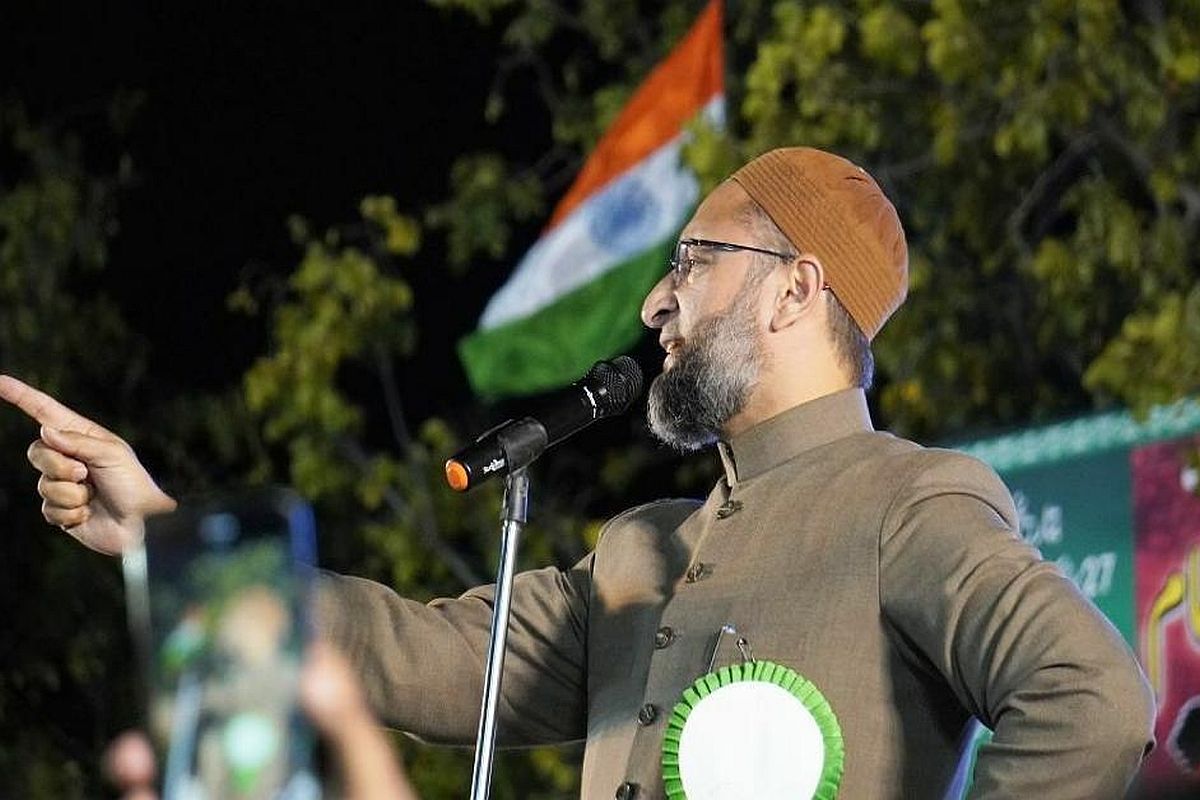Amit Shah to undertake 3-day tour to Assam from March 14
The visit is seen as part of the government's continued focus on education and development in Assam and the Bodoland Territorial Region (BTR).
Meanwhile, JD(U) vice president and political strategist Prashant Kishor has also challenged Amit Shah to ‘try and implement’ CAA and NRC.

AIMIM President Asaduddin Owaisi. (File Photo: IANS)
In a strong rebuttal to Union Home Minister Amit Shah’s challenge to opposition leaders for a public debate on CAA, All India Majlis-e-Ittehadul Muslimeen (AIMIM) chief Asaduddin Owaisi on Tuesday dared the BJP leader for a face-off with him on the contentious law.
“Why debate with them? Debate with me,” Owaisi was quoted as saying by news agency ANI at a rally in Telangana’s Karimnagar.
Advertisement
“You should debate with me. I am here. Why debate with them? The debate should be with a bearded man. I can debate with them on CAA, NPR (National Population Register) and NRC (National Register of Citizens),” he said.
Advertisement
He referred to himself as the “bearded man” with reference to the facial hair that Muslim men are required to maintain.
Amit Shah, at a rally in Lucknow on Tuesday, had launched a scathing attack on the opposition over the contentious Citizenship Amendment Act and dared Rahul Gandhi, Mamata Banerjee and Akhilesh Yadav to hold a public debate on the law.
He further alleged the three opposition leaders of spreading misinformation on the Act.
Even as protests raged the country, an unfazed Amit Shah had said: “The government is not going back on CAA. Those who want to protest may continue doing so.”
Meanwhile, JD(U) vice president and political strategist Prashant Kishor has also challenged Amit Shah to “try and implement” CAA and NRC.
“Being dismissive of citizens’ dissent couldn’t be the sign of strength of any Govt. @amitshah Ji, if you don’t care for those protesting against #CAA_NRC, why don’t you go ahead and try implementing the CAA & NRC in the chronology that you so audaciously announced to the nation! (sic)” Kishor said in a tweet.
The opposition parties have termed the legislation as “unconstitutional” which “is aimed at diverting attention from the burning issues of the common people”.
Those opposing the amended law say it discriminates on the basis of religion and violates the Constitution. They also allege that the CAA, along with the proposed pan-India National Register of Citizens (NRC), is intended to target India’s Muslim community.
According to the new law, members of Hindu, Sikh, Buddhist, Jain, Parsi and Christian communities, who have come from Pakistan, Bangladesh and Afghanistan, till December 31, 2014, facing religious persecution there, will not be treated as illegal immigrants but given Indian citizenship.
Advertisement